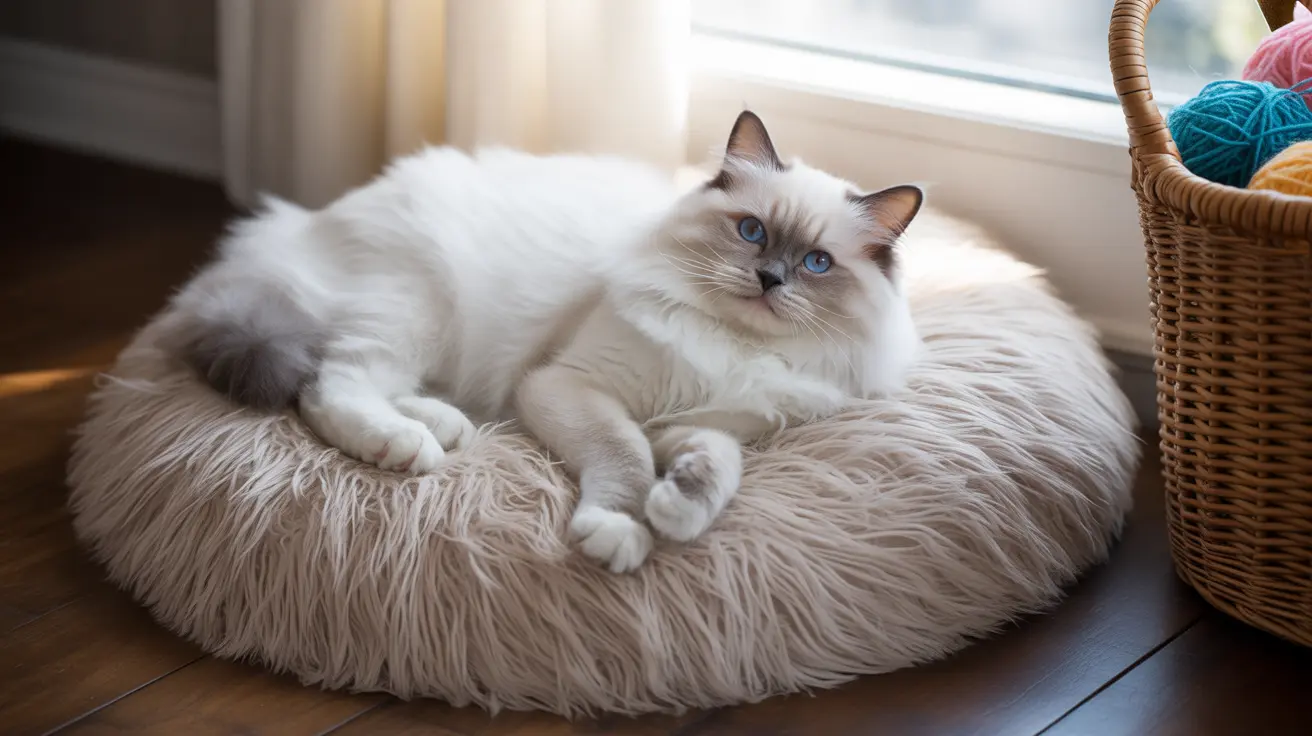If you've ever woken up to find your cat curled up on your pillow, you're not alone. This common feline behavior, while endearing to some and frustrating to others, has deep roots in both instinctual and emotional factors. Understanding why your cat chooses your pillow as their preferred sleeping spot can help you better appreciate this behavior and decide whether to encourage or redirect it.
The Science Behind Your Cat's Pillow Preference
Cats are naturally drawn to warm, comfortable spaces, and your pillow offers both in abundance. Your head generates significant heat throughout the night, making the pillow an ideal spot for cats, who need to maintain a body temperature between 100.4º and 102.5º Fahrenheit. Additionally, the soft, elevated surface of a pillow provides the perfect combination of comfort and security that cats instinctively seek.
Emotional Bonding and Trust
When your cat chooses to sleep on your pillow, they're often expressing deep trust and affection. Cats are most vulnerable while sleeping, so selecting a spot close to your head demonstrates their confidence in you as their caregiver. This behavior often strengthens the bond between cat and owner, as proximity during sleep is a significant form of social bonding in the feline world.
Territory and Scent Marking
Your pillow carries your distinct scent, making it an important territory marker for your cat. By sleeping there, they're both surrounding themselves with your comforting smell and mixing their scent with yours. This behavior helps establish what cats consider a shared territory, reinforcing their connection to you and their place in the household.
Safety and Surveillance
Cats naturally prefer elevated positions that offer good visibility of their surroundings. Your pillow provides an excellent vantage point, allowing them to observe the room while feeling secure. This position also aligns with their instinctual need to protect themselves and their family members during vulnerable sleeping hours.
Health and Comfort Considerations
While having your cat sleep on your pillow can be a sweet bonding experience, it's important to consider potential health implications. Cats can carry dander, dirt, and occasionally parasites in their fur, which might affect those with allergies or sensitive skin. Regular grooming and maintaining clean bedding can help minimize these concerns.
Frequently Asked Questions
Why does my cat sleep on my pillow instead of their own bed?
Cats choose your pillow over their bed because it offers warmth, your comforting scent, and an elevated position. It's also a way for them to bond with you and feel secure in your presence.
Is it normal for a cat to sleep on or near my head during the night?
Yes, this is completely normal behavior for cats. It demonstrates trust, affection, and a desire to be close to their favorite human while taking advantage of your body heat.
How can I stop my cat from sleeping on my pillow without upsetting them?
Provide an alternative sleeping spot nearby that offers similar benefits - perhaps a soft, elevated cat bed placed close to your headboard. Gradually encourage your cat to use this space by making it more attractive with treats and positive reinforcement.
Does my cat sleeping on my pillow affect allergies or sleep quality?
It can affect both. Cat dander on your pillow may trigger allergies, and their movement during the night might disturb your sleep. Regular pillow case washing and creating an alternative sleeping space for your cat can help address these issues.
What does it mean when my cat chooses my pillow as their favorite sleeping spot?
This typically indicates strong trust and affection towards you. It's a sign that your cat feels secure in your presence and wants to maintain close physical contact during vulnerable sleeping hours.
Conclusion
Your cat's preference for sleeping on your pillow is a complex behavior rooted in instinct, emotion, and practical comfort. While this habit can be managed if it's causing problems, it's generally a positive sign of a strong bond between you and your feline companion. Understanding these motivations can help you make informed decisions about whether to accommodate or redirect this behavior while maintaining a healthy relationship with your pet.






